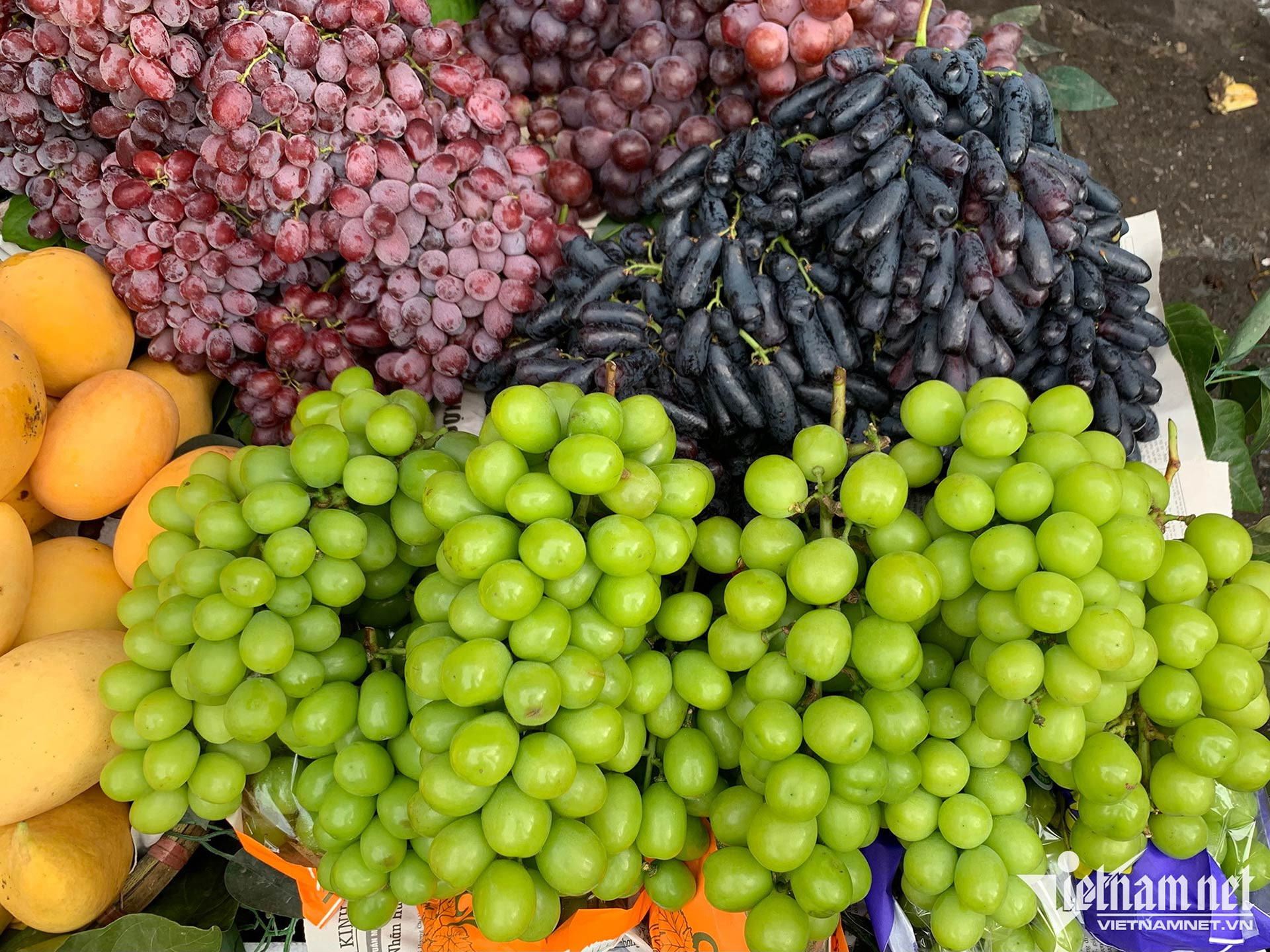Leaders of the Plant Protection Department (PPD) shared with VietNamNet the latest inspection and monitoring results regarding Chinese grapes imported into Vietnam.

For fresh grapes imported into Vietnam, the PPD under the Ministry of Agriculture and Rural Development (MARD) clarified that all fruit shipments, including grapes, are currently subject to standard food safety inspections (documentation review only). Procedures for food safety inspections on these items are conducted as per Decree 15.
The PPD has included imported grapes in its 2024 food safety monitoring program. After testing ten samples of Chinese grapes, no violations of Vietnamese food safety standards (specifically pesticide residues) were detected.
Regarding 2023 monitoring results for Chinese grapes, the PPD found that only 1 out of 77 samples (1.3%) violated Vietnam's regulations.
Concerning recent reports of pesticide residue on Thai-sourced milk grapes, the PPD stated that it had reached out for official information from Thailand’s Ministry of Agriculture and FDA.
Based on Thailand’s analysis and official warnings, the PPD will consider applying stricter inspection methods for grape shipments imported from China.
Additionally, the PPD will continue exchanging information through international food safety alert channels to assess the safety risks associated with Chinese grapes.
“Media coverage on this issue should be based on official information from regulatory bodies (MARD) to prevent misunderstandings in society,” the PPD representative shared.
Food safety checks on imported fruit shipments are currently conducted under Decree 15/2018/ND-CP, issued on February 2, 2018, which details certain aspects of the Food Safety Law (hereafter referred to as Decree 15).
Decree 15 outlines three food safety inspection methods: strict inspection, standard inspection, and reduced inspection. The method applied depends on food safety risk assessments of imported shipments/items:
- Reduced inspection: Only up to 5% of imported shipments per year are randomly selected by customs for documentation checks.
- Standard inspection: Only documentation for imported shipments is reviewed.
- Strict inspection: Combines documentation review and sample testing.
Using domestic and international food safety data, post-inspection results, and safety violations over time, relevant agencies determine whether to apply standard or strict inspection methods to certain shipments or items.
In addition to pre-import food safety checks, the PPD under MARD conducts an annual Imported Plant-Based Food Safety Monitoring Program. This program focuses on analyzing key food safety criteria, especially pesticide residues in imported fruits. Its objectives are to:
- Assess compliance with Vietnamese food safety regulations for imported foods.
- Support food safety inspections for plant-based imports, blocking non-compliant shipments and protecting domestic consumers' health.
- Promptly advise management agencies to add or adjust testing criteria and target items in line with current conditions.
The results of this monitoring program are crucial for determining appropriate inspection methods for imported shipments and items.
Tam An